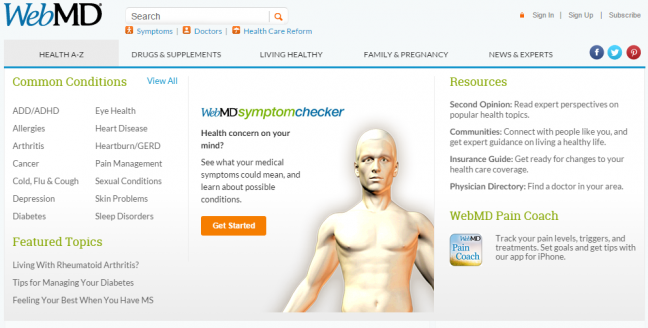With the stress and anxiety that plague students on a typical day, it comes as no surprise that mental health concerns have become prevalent (and growing) issue on campuses across the nation. According to the National Alliance on Mental Illness, “One in four young adults between the ages of 18 and 24 have a diagnosable mental illness,” with depression and anxiety topping the list.
If you are not diagnosed as mentally ill by a licensed psychologist or psychiatrist, you have no business labeling yourself as such. In my eyes, there are two categories of people who engage in self-diagnosis – those who grossly misunderstand mental illness and those who have legitimate symptoms but are not seeking necessary professional help. Both are negative.
There was a girl from my high school who made a video proclaiming to the world something to the effect of, “I am depressed, have anxiety and am probably bipolar.” Involuntarily, I rolled my eyes at the phrase “probably bipolar.” In reality, bipolar disorder is one of the hardest illnesses to diagnose, even for psychologists. Here she was, a self-diagnosed bipolar, clearly not understanding the very illness she claimed she had.
First and foremost, if you are not a psychologist or psychiatrist, you are not qualified to diagnose mental illness. Self-diagnosing unintentionally trivializes mental illness. Medical websites such as WebMD have blurred the line between patient and doctor by making self-diagnosing much easier. This has given rise to a phenomenon of “cyberchondria.” First studied in 2008, cyberchondria is, “Unfounded escalation of concerns about common symptomatology, based on the review of search results and literature on the Web.” An example of this unfounded escalation is assuming you have clinical depression because you were feeling down for a few days. This escalation trivializes mental illness by equating normal sadness with clinical depression. This reinforces the common – though untrue and offensive – idea that mental illness is not that serious and those who are affected are simply weak.
In self-diagnosing you oversimplify mental illness. In the words of Dr. Srini Phillay in his 2010 Psychology Today article The Dangers of Self-Diagnosis, “When you self-diagnose, you are essentially assuming that you know the subtleties that diagnosis constitutes. This can be very dangerous, as people who assume that they can surmise what is going on with themselves may miss the nuances of diagnosis.” In short, mental disease is complex. You would look pretty silly if you had foot pain and definitively concluded you had a broken foot with no other input than the internet. Self-diagnosis of mental illness is just as ridiculous.
Then there is the other form of self-diagnosis — those who believe they are legitimately mentally ill. This brings an interesting paradox of someone who believes they are mentally ill but either refuses to seek professional help or believes they do not need it. Obviously there are more scenarios capable of deterring the mentally ill from seeking professional help, but when it’s between self-diagnosis and a trained practitioner, the former is almost always the better choice. There seems to be an unhealthy belief that mental illness can be dealt with free of professional diagnosis and treatment — the help of friends and perseverance will get you through.
As someone who frequents social media I have seen countless posts declaring, “I am here if anyone needs to talk. If anyone is feeling depressed or suicidal, talk to me.” This is admirable and fantastic. I know if anyone came to me feeling unwell I would not hesitate to try and help. However, I’m here to say that if you believe yourself to be mentally ill, you need to contact a professional.
This is not to say a support network is not crucial, but rather that mental illness requires the therapy and support that can only come from a licensed professional. University of Wisconsin students can access mental health services through University Health Services. These services encompass individual therapy (ten free appointments per semester), group therapy and a 24-hour crisis line.
Madeline Sweitzer ([email protected]) is a sophomore majoring in political science and intending to major in journalism.














